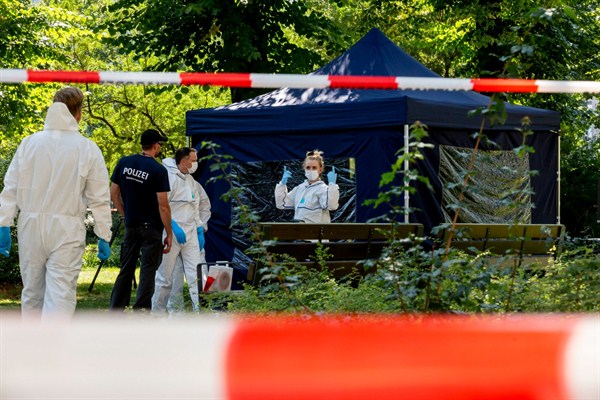The German government announced earlier this month that it believed Russian agents were responsible for the killing of a Georgian asylum-seeker who was murdered in Berlin last summer in broad daylight. The incident had all the hallmarks of a Russian state-orchestrated assassination: The target was a known anti-Kremlin rebel, and the prime suspect, who was taken into custody just hours after the murder, was a Russian man with a criminal record who had traveled to Germany on a fake passport less than a week before the killing.
Yet despite ample evidence, the German government for months was cautious in publicly attributing responsibility for the attack. Even when it finally blamed the Russian government on Dec. 4, the only retaliation it took was to expel two Russian diplomats stationed in Berlin. This minimalist approach stands in stark contrast to the prolonged international pressure campaign that the United Kingdom spearheaded after the attempted assassination of a former Russian double agent, Sergei Skripal, in England last year. Germany’s quieter response is apparently based on a desire not to exacerbate existing tensions with Russia, but it may well only worsen the situation by emboldening the Kremlin in the future.
The victim of the killing in Berlin, Zelimkhan Khangoshvili, was a Georgian citizen of Chechen descent with a long track record of fighting against the Russians and the Kremlin-backed strongman ruler of Chechnya, Ramzan Kadyrov. Moscow has claimed that Khangoshvili was involved in multiple terrorist attacks. According to the investigative journalism outlet Bellingcat, his killer turned out to have false documents issued by the same department of the Russian government that had also provided fake identities for the men accused of trying to assassinate Skripal using a powerful nerve agent. In custody, Khangoshvili’s killer, named as Vadim Sokolov in his fake passport, refused to speak to anyone but a representative of the Russian Embassy.

